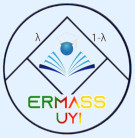The themes developed within ERMASS revolve around game theory (cooperative and non-cooperative games) and include research areas in mathematical economics, finance, and graph theory problems.
Game theory is a mathematical discipline that focuses on the modeling and resolution of strategic questions in the context of interaction between rational individuals (agents, players, etc.). It originated with the publication of the book titled Theory of Games and Economic Behavior in 1944 by Oskar Morgenstern and John Von Neumann.
As fields of application of game theory, one can mention, without being exhaustive,
- Economics: consumer behavior, markets, and businesses in a competitive market, supply and demand analysis, the necessity (or not) of cooperation between businesses and the sharing of the fruits of cooperation, the role of threats and sanctions in a long-term relationship,
- Social sciences: social behaviors, development of social rules (norms),
- Political science: the mechanisms of collective decision-making, the formation of political alliances, the competition between politicians, the measurement of the real influence of an actor in a political arena, ...
- Evolutionary biology: understanding and predicting the outcomes of the evolution of animal species (and populations), ...

